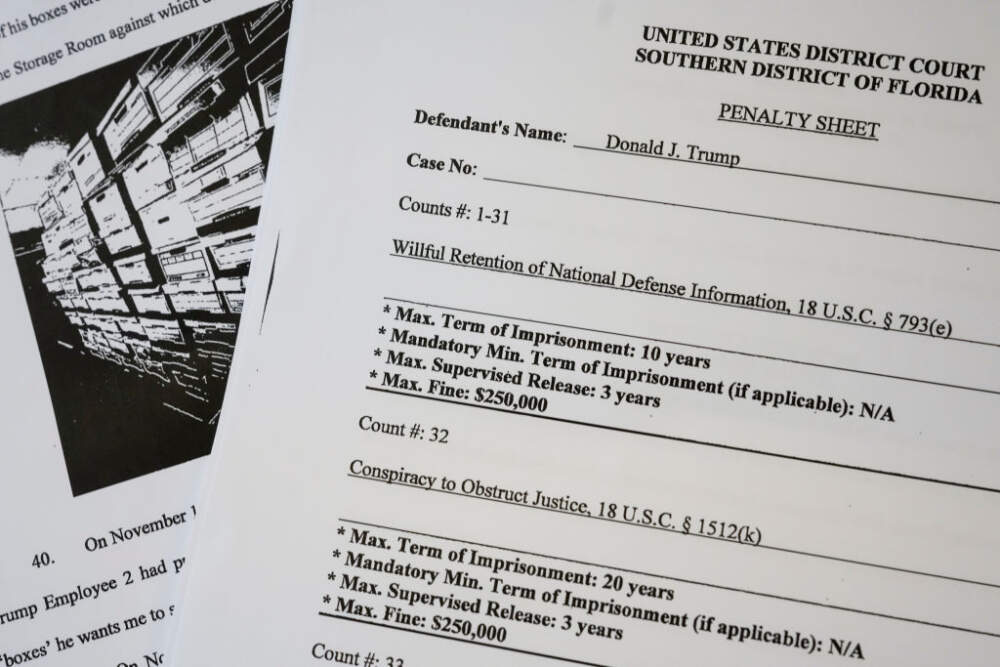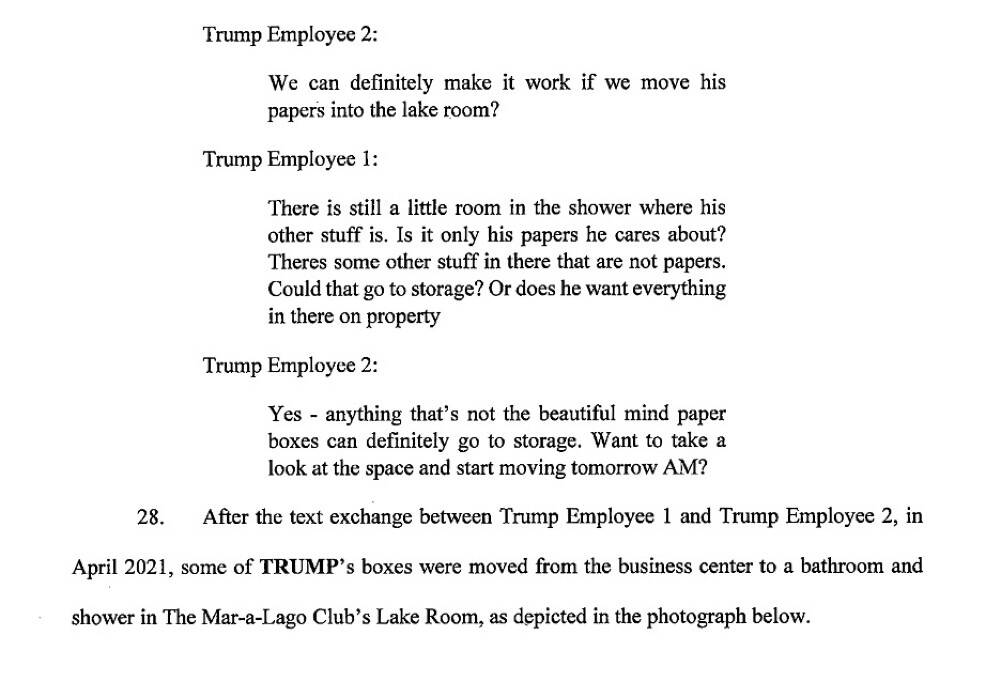Advertisement
Commentary
What the Trump indictment can teach us about good writing

Since the Department of Justice unsealed the indictment of former president Donald Trump last week, the pundits have been in overdrive assessing the contents -– the details, the charges, the chances of a conviction, and the implications for the 2024 election. As a writing instructor, I can’t help but think about the document itself, which is a surprisingly compelling read, especially for legal writing, a genre that’s primarily focused on laying out the facts.
While the facts detailed in the indictment would be shocking no matter how they were presented, special counsel Jack Smith and his team made some intentional writing choices that make this document — and therefore the case against Trump — especially effective.
I tell my students that when they admire a piece of writing, they should try to figure out what’s working so they can use those strategies in their own work. So what can we learn about good writing from the indictment?

Understand your audience
The federal indictment is what prosecutors call a “speaking indictment,” because it goes into substantial detail about the charges rather than just listing them as they might in a standard indictment.
In choosing to issue a speaking indictment, the prosecutors were doing something that effective writers always do: They were thinking about their audience. They understand that the audience for the indictment will not be just the courts, but all of us — and that it’s crucial for Americans who don’t spend much time reading legal documents to be able to understand why Trump’s actions led to these 37 felony counts. By choosing the speaking indictment format, the prosecutors were able to take control of the narrative.
Subheadings should add something to your document
Subheadings teach readers how to read a document, and so they need to serve as signposts for the main arguments. If you were to read only the subheadings in the indictment, you’ll get a good overview of narrative arc of Trump’s actions. And if you don’t have time to read the whole thing, you’ll have a good sense of what you’ll get in a particular section.
Perhaps you want to dip into the story early and learn about “The Executive Branch Departments and Agencies Whose Classified Documents Trump Retained After His Presidency.” Or maybe “The False Certification to the FBI and the Grand Jury” catches your attention.
I’ve read a lot of documents with subheadings that are too cryptic to be useful (think, “The Executive Branch” or “Certification”), and in those cases, the authors miss an opportunity to shape the reader’s experience.
Choose your evidence carefully and organize it deliberately
The evidence in this document crackles. The absurdity of some of the behavior that is chronicled would still have been clear in a document that wasn’t well-written. But the prosecutors are able to shape readers’ understanding of the events — and the stakes — by choosing the right details and putting them in the right places.
The prosecutors did a particularly effective job of choosing evidence that paints a picture of what was going on at Mar-a-Lago without the need for exposition. Consider this example, from page 11: They begin by providing the transcript of a text exchange between two Trump employees discussing whether boxes can be put into storage. That transcript is immediately followed by this sentence:
After the text exchange between Trump Employee 1 and Trump Employee 2, in April 2021, some of TRUMP’s boxes were moved from the business center to a bathroom and a shower in the Mar-a-Lago Club’s Lake Room, as depicted in the photograph below.

Without editorializing, which can’t be done in this type of legal document, the authors manage to convey the absurdity of the situation: He stored classified documents in the bathroom!
Even when chronology is less important, decisions about how to sequence evidence can influence the way we understand it. Consider the example below, from page 21, which, the DOJ prosecutors explain, is a collection of statements that Trump made to his attorneys on May 23, 2022. We’re not told the order in which Trump made these statements; instead, the prosecutors put them in an order that creates a specific narrative arc. Whether or not he made those statements in that order, the decision to include them in that order creates a sense of Trump’s increasing desperation.

The outcome of this case will, of course, depend on more than the strength of the writing in the indictment. But good writing matters, especially when you have a story to tell or an argument to make. In this case, the banal cadence of a standard legal document would not have been nearly as interesting or persuasive. In the age of ChatGPT, when formulaic writing will be ever easier to generate, those voices who can capture our attention and shape our understanding of the world will matter more than ever.
